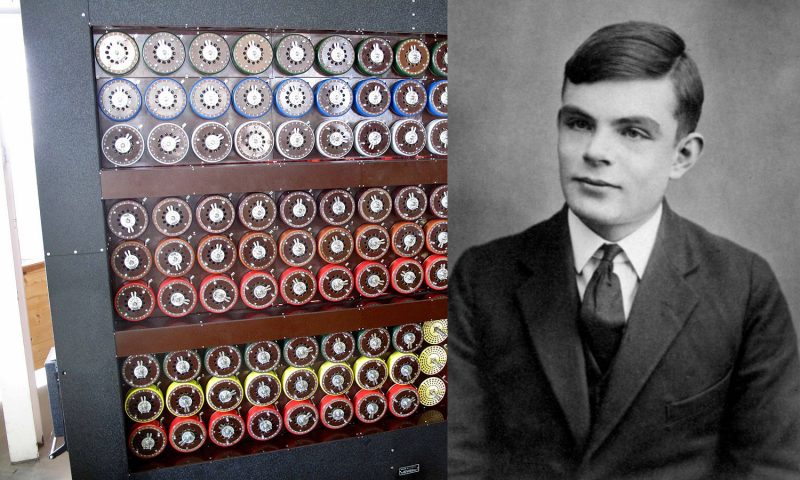
Alan Turing
Publicly recognised as a war hero long after his death, Alan Mathison Turing was born in London in 1912 and by age nine was already being hailed as a “genius” by his schoolteachers. He studied advanced science in his leisure time, took his mathematics degree at Cambridge and his PhD at Princeton.
He published a paper in 1936 on ‘computing machines’ and at the start of World War 2 in 1939 began working at Bletchley Park, where he and a small team of codebreakers used such machines on the enemy’s secret communications. He famously broke the Enigma code used for messages to German submarines in the Atlantic. It is estimated that this saved millions of lives and shortened the War by as much as two years.
He continued in the field of computer science and machine intelligence post-War at the National Physical Laboratory and the University of Manchester, and is often called ‘the father of modern computing’ for laying down the theory. Sadly, he took his own life in 1954. He is featured on the new £50 note first issued on his birthdate in 2021.
(Images LtoR: TedColes at Wikimedia Commons / Public domain & unknown at Wikimedia Commons / Public domain)
